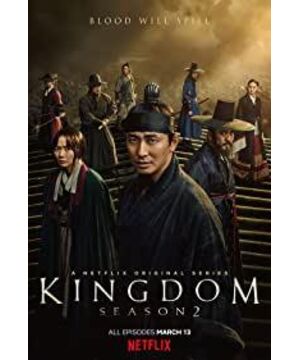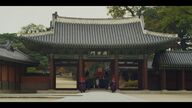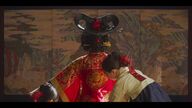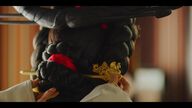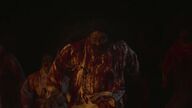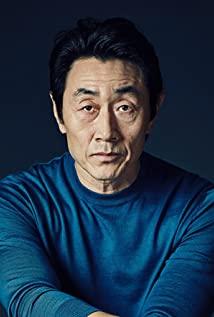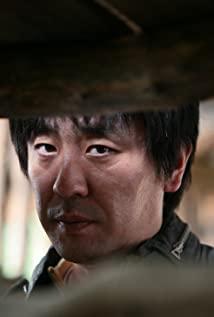Three questions are raised in response to the story nodes in the play, thereby expounding the historical origin of the Li Dynasty and ancient Chinese political culture. 1. Why did Li Cang, the heir of the North Korean family, want to rebel? 2. Is there any connection between the anti-invasion campaign mentioned by Anxuan and the "Jiajing Japanese Difficulties" in the Ming Dynasty? 3. Why couldn't the prince Li Cang face the issue of killing his father, which led to the end of the second season giving way to the fake Yuanzi?
It can be seen from the Netfilx hit drama "Kingdom" that the background of this drama is probably set in the middle and late stages of Li's Joseon (hereinafter referred to as Li Chao). The Li Dynasty was the last unified feudal dynasty in the history of the Korean peninsula. We can analyze and answer the origin of the Korean peninsula and our ancient political culture from the historical evolution of the Korean peninsula. The historical evolution of the Korean peninsula can be seen in the table below.
Three questions are raised in response to the story nodes in the play, thereby expounding the historical origin of the Li Dynasty and ancient Chinese political culture.
1. Why did Li Cang, the heir of the North Korean family, want to rebel?
2. Is there any connection between the anti-invasion campaign mentioned by Anxuan and the "Jiajing Japanese Difficulties" in the Ming Dynasty?
3. Why couldn't the prince Li Cang face the issue of killing his father, which led to the end of the second season giving way to the fake Yuanzi?
one 1: Why did Li Cang, the prince of the North Korean family, want to rebel?
First of all, let's understand the brief information of Li Chao. The establishment of the Li Dynasty is similar to that of the Ming Dynasty in my country. Although its founder Li Chenggui overthrew the rule of the Goryeo Dynasty, he still inherited the old system of the Goryeo Dynasty in the political system and was influenced by the ancient official system of our country. In "Kingdom", there are the succession system of the firstborn son, the six Cao (six ministers), the military hierarchy and so on. Among them, the firstborn succession system can be traced back to the Western Zhou Dynasty, that is, the core firstborn succession system of the Western Zhou clan legal system.
Secondly, let's answer why the prince Li Cang rebelled?
In the play, the prince Li Cang's treasonous background setting is that his father is seriously ill, his stepmother is pregnant (about to give birth), and his foreign relatives are in power. Anyone who knows ancient Chinese history knows that it is a very scary thing for a foreign relative to seize power. In Chinese history, Wang Mang, a foreign relative of the Western Han Dynasty, took his place, and Yang Jian, a foreign relative of the Northern Zhou Dynasty, proclaimed himself emperor on behalf of Zhou.
From this, it is not difficult to understand that Li Cang, the prince of the state who is in a "high position", is going to rebel. The prince who has no political power is only in vain and can only hope that Li Chao's upright ministers will rescue him. Assuming that Li Cang did not rebel, according to the normal development sequence of history, it is very likely that Li Cang's father died, his stepmother gave birth to a son, Li Cang was abolished (confined/killed), his concubine was under the curtain and his foreign relatives took power. This is essentially equivalent to changing the dynasty, and it is only a matter of time before the dynasty is called the system.
two 2: Is there any connection between the anti-invasion campaign mentioned by Anxuan and the "Japanese disaster in Jiajing" of the Ming Dynasty?
The Korean Anti-Invasion Campaign mentioned by An Xuan Dajian in the play, in the real history of the Li Dynasty, refers to the Imchen Japanese Rebellion (Wanli Aid Korea War), that is, the military assistance to the Li Dynasty against the Japanese from the 20th year of Wanli in the Ming Dynasty. The "Rimchen Japanese Rebellion" started when the Japanese ruler Toyotomi Hideyoshi wanted to pacify Korea first and then encroach on Chinese territory. Although Toyotomi Hideyoshi's intention of aggression against Li Chao and China ended in failure, it had a huge impact on the Three Kingdoms.
In the short term, the Li Dynasty was able to maintain political independence, but its political and military strength was severely weakened, which led to the subsequent situation in North Korea and South Korea; Japan's Toyotomi Hideyoshi Group was seriously damaged, which indirectly led to the rise of the Tokugawa shogunate; the Ming Dynasty eventually The suzerain-vassal relationship was maintained, but the overall national strength was dragged down by the war.
In the long run, the "Rimchen Japanese Rebellion" of the Li Dynasty actually played a role in reintegrating the political and military forces of Asian countries, and laid the foundation for a peaceful situation in Asia for the next three hundred years.
Of course, the above situation also stems from the geopolitical relationship between China, the Korean Peninsula, and Japan since ancient times. As an island country, Japan has a small territory, lacks resources and is prone to earthquakes. Therefore, the Japanese nation has a strong sense of foreign expansion in order to seize more resources and territory. There is no doubt that China, with its vast land and abundant resources, is the best choice. The Korean Peninsula has maintained a tributary or suzerainty relationship with ancient China since ancient times. It first occupied Korea, then invaded the three northeastern provinces, and entered China's inland areas through the three northeastern provinces. It is undoubtedly Japan's best plan to conquer East Asia. This plan has a long history, which can be proved from the long-term intrusion of Japanese pirates at the end of the Goryeo Dynasty on the Korean peninsula. At the same time, the southeastern coast of the Ming Dynasty was also disturbed by Japanese pirates.
Therefore, the Japanese pirates in the Li Dynasty and the "Japanese disaster" in the Ming Dynasty essentially refer to the intrusion of the Japanese, but in chronological order, the first "Jiajing Japanese disaster" in the Jiajing period of the Ming Dynasty, and then the Ren Dynasty in the middle and late Li Dynasty. Chen Japanese chaos.
Three 3: Why couldn't the prince Li Cang face the issue of killing his father, which led to the end of the second season giving way to the fake Motoko?
The Korean peninsula has long maintained a suzerainty relationship with ancient China, so it was deeply influenced by Buddhism and Confucianism. The Li Dynasty mainly adopted Confucianism to govern the country, emphasizing the importance of "respecting the elders and the young", filial piety to parents, respecting teachers and respecting Taoism, and filial piety to elders. The people of Li Chao have been influenced by Confucianism in all aspects since childhood, and their respect and filial piety to their parents are very deep. As the heir of the state, Li Cang was instilled with more profound Confucian teachings in terms of morality, which is completely in line with cultural influence.
Therefore, even if Li Cang's father had become a walking corpse and killed his father, it was still difficult for him to accept it psychologically. At the same time, this also paved the way for Li Cang to give way to the fake Yuanzi (the son of Zuo Yiwei) at the end of the second season.
As for why the prince, Li Cang, gave up his easy-to-have throne to the fake Yuanzi?
The best guess can be made: the plot required, Netfilx to renew the follow-up series, thus leaving two plot development clues at the end of the second season. One is that Li Cang, the doctor girl, Yongxin and others continue to search for the secret of life and death, and they meet the character played by Jun Zhixian, leaving suspense for the ending. The other is that Li Cang gave way to a fake Yuanzi (who was bitten by a walking corpse and was "cured"), which not only saved Yuanzi's life, but also laid a gunpowder for the outbreak of the walking corpse virus in Li Chao.
End: Conclusion
From the analysis of Netflix's hit drama "Kingdom", we can roughly glimpse the all-round influence of ancient Chinese political culture on the political culture of the Li Dynasty. Whether it is the study of the political system or the dissemination of ideology and culture, it is closely related to various periods in ancient China. This influence comes not only from the geopolitical relationship between the two countries, but also from the historical development of the Korean peninsula.
The connection between the Korean Peninsula and ancient China can be traced back to the period when King Wu of the Western Zhou Dynasty destroyed the Shang Dynasty.
According to the "Historical Records", "King Wu was entrusting Jizi to Korea without being a minister."
Gu Yanwu said in his book "Rizhilu": "The Korean city, in the territory of Yongping Prefecture (the west bank of the Luan River), is the place where Jizi was sealed."
According to a large number of ancient Chinese cultural books, Korean history books, and archaeological discoveries, Jizi not only passed on advanced farming culture to the Korean Peninsula, but also brought a large number of bronze wares.
Therefore, from the perspective of Western Zhou feudal feudalism, the Korean Peninsula itself is a Western Zhou fief, and there is no essential difference between the nature of Kei's Korea and the nature of the various vassal states in the Central Plains during the same period. After Qin unified the whole country, the Kei clan later became subject to Qin, and there was no essential difference between Qin's annexation of the various vassal states in the Central Plains. From the perspective of historical development, there was the development of Ki's Korea on the Korean Peninsula first, and then the Weishi Korea, Goguryeo, Baekje, Silla, Goryeo Dynasty, and Li Dynasty.
This shows that the Korean peninsula itself is a part of ancient China. It is only because of the change of dynasties in ancient China and the change of regime on the Korean peninsula that the relationship between the two is different in distance. In essence, it can be said that they have the same origin and the same origin, and they are both inseparable parts of the Asia-Pacific circle.
Analysis of Netflix's hit drama "Kingdom": the historical origin of Lee's Korea and ancient Chinese political culture
View more about Kingdom reviews


